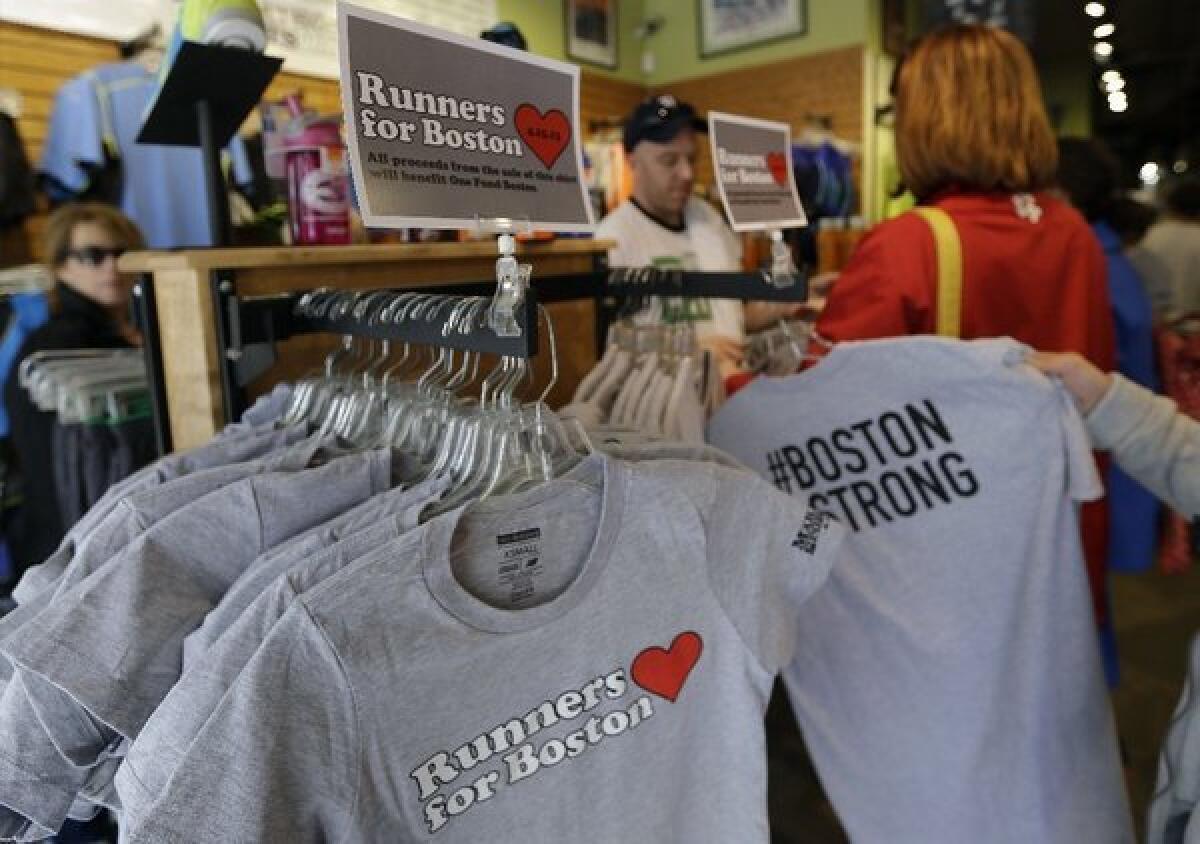Consumer confidence drops in April; Boston bombings not a factor

- Share via
WASHINGTON -- Consumer confidence dropped this month amid some discouraging economic news, but picked up in recent days despite the Boston Marathon bombings, according to a leading private barometer.
The Thomson Reuters/University of Michigan Survey of Consumers index fell 2.8% in April from the previous month to 76.4. The reading was exactly the same as a year earlier.
Most of the decline was because consumers were less optimistic about the ability of the economy to keep expanding.
The reading came as the government reported that economic growth picked up in the first three months of the year, with gross domestic product growing at an annualized rate of 2.5%.
QUIZ: How much do you know about California’s economy?
The drop in consumer confidence was less than analysts anticipated. Economists surveyed by Bloomberg News projected a 73.5 reading.
The projections were based in part on the preliminary April figures released two weeks ago that showed the index dropped to 72.3, its lowest level since July. A few days later, terrorists attacked the Boston Marathon.
Richard Curtin, the survey’s chief economist, said the bombings didn’t shake consumer confidence. After declining significantly in early April, confidence began to improve before the bombings and “gained strength throughout the rest of the month,” he said.
“Even when consumers were asked to describe in their own words their economic situation and that of the nation as a whole, there were virtually no references to the Boston Marathon bombing,” Curtin said.
“Of course, this does not mean that people did not grieve at the human tragedy, only that consumers did not think the events in Boston would influence national economic prospects.”
Only about a quarter of consumers expected the unemployment rate to go down during 2013. And half of respondents did not expect their household income to increase this year.
ALSO:
Labor groups renew push for paid sick leave
Consumers’ shift to older iPhones raises investor concerns
Internet sales tax bill advances, but final Senate passage delayed
More to Read
Inside the business of entertainment
The Wide Shot brings you news, analysis and insights on everything from streaming wars to production — and what it all means for the future.
You may occasionally receive promotional content from the Los Angeles Times.











